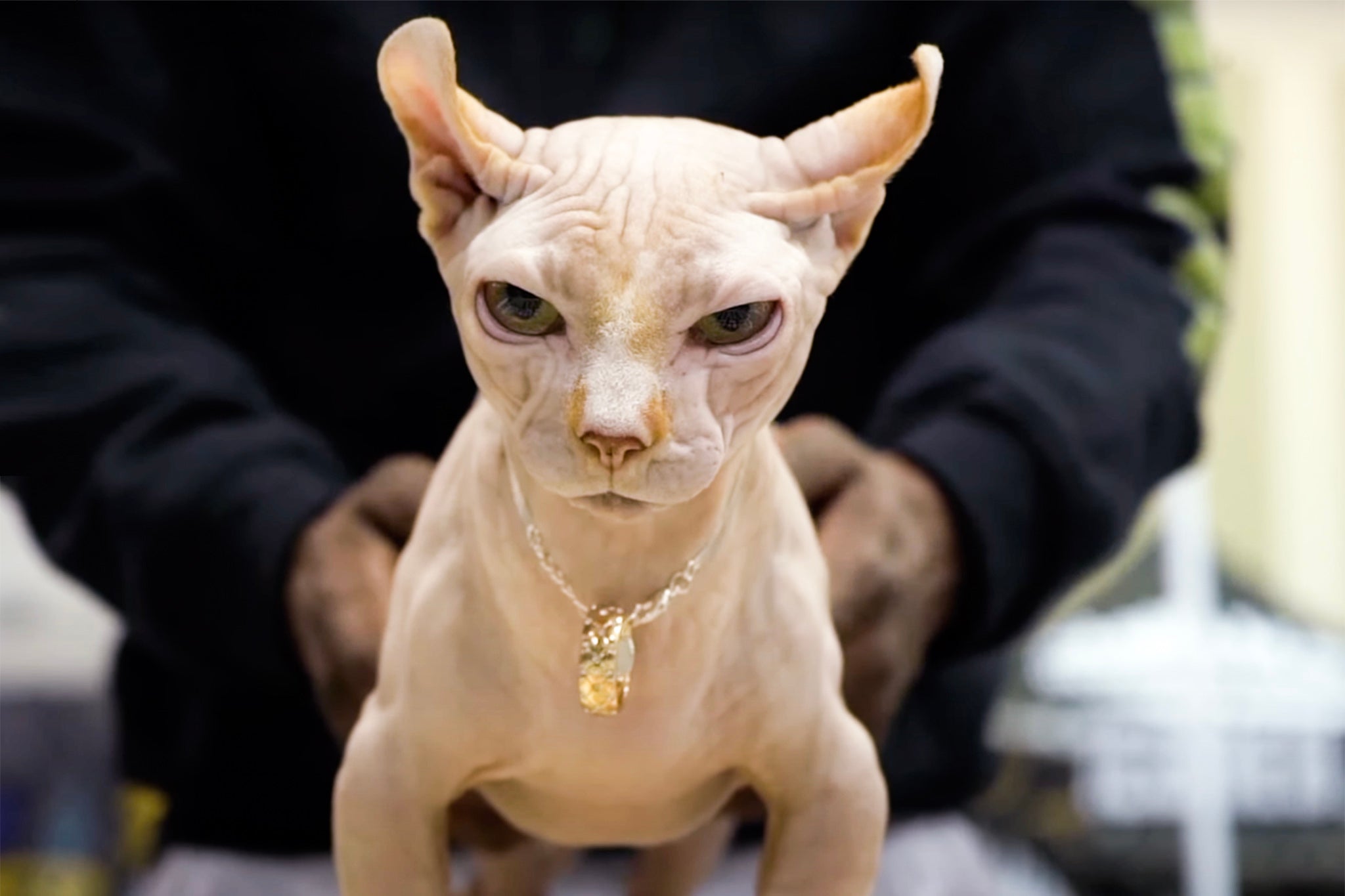
In recent weeks, a troubling trend has emerged in the UK involving the breeding of a new type of hairless cat known as the "bullycat." This breed, characterized by its resemblance to the Sphynx cat but with exaggerated features such as very short legs and excessive skin folds, has been gaining attention on social media platforms. However, experts and animal welfare organizations are sounding alarms about the severe health issues these cats face due to their unnatural physical characteristics.
The Royal Society for the Prevention of Cruelty to Animals (RSPCA) has issued a stark warning against purchasing these so-called bullycats. According to their experts, these cats are bred with extreme physical traits that can lead to significant health problems. The exaggerated short legs and heavy skin folds can cause joint strain and susceptibility to skin conditions, leading to potential long-term discomfort and costly veterinary bills for owners. Furthermore, the lack of fur not only leaves these cats exposed to harmful ultraviolet rays but also impairs their ability to navigate their environment as they lack the whiskers and fur that normally aid in exploration and protection.
Dr. Dan O'Neill, an Associate Professor at the Royal Veterinary College, has expressed deep concern about the suffering inflicted on these animals. He notes that the health issues experienced by bullycats, such as a shortened lifespan, are reminiscent of those seen in the Sphynx breed. Dr. O'Neill points out that Sphynx cats, which also face similar health challenges, have an average lifespan of just 6.7 years compared to the 11.7 years typical for cats overall. This stark difference underscores the grim reality for cats bred with such extreme physical traits.
The Naturewatch Foundation has echoed these concerns, highlighting the disturbing rise of this trend in the UK. They emphasize that the bullycat craze represents a troubling continuation of extreme breeding practices previously observed in the dog world. The foundation urges potential pet owners to reject these designer breeds and consider adopting from shelters instead. They stress that the welfare of animals should always take precedence over superficial aesthetics.
In light of these warnings, it is crucial for prospective pet owners to carefully consider the implications of choosing a pet with extreme physical modifications. The RSPCA and other animal welfare organizations advocate for a shift towards prioritizing the health and well-being of animals over trends that prioritize appearance. By choosing to adopt rescue cats or supporting responsible breeding practices, we can help prevent unnecessary suffering and promote a more ethical approach to pet ownership.


0 Comments